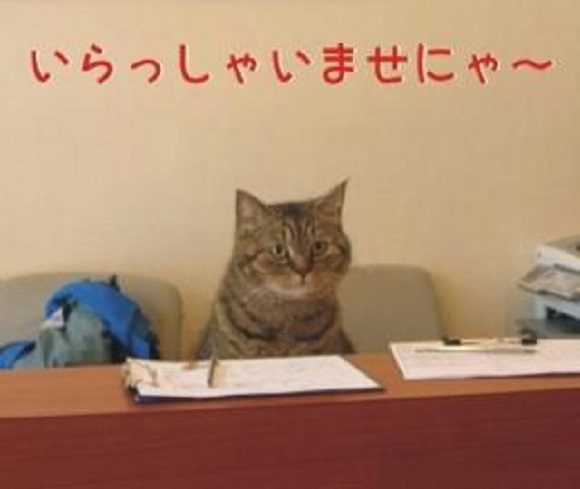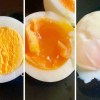
Some say that puns are the lowest form of humor–we say those people have no sense of humor! Of course, that’s not to say that all puns are comedic genius, a fact easily proven by turning on any used car lot commercial, but we love a good pun.
While not all puns are created equal, we have to say that our favorite puns often come from children. There’s something perfectly surreal about a child’s fumbling of language–but of all the puns we’ve seen, this might be one of the best…
Simple yet adorable, the only thing this joke is missing is someone screaming “Do you get it?” while laughing manically. The picture was drawn by the daughter of Japanese Twitter user @aarinwassyoi and it probably needs a tiny bit of explanation–a father cheering on Japanese idol group Momoiro Clover isn’t exactly high (or low) comedy in and of itself.
▼Though their costumes may inspire some giggles.
https://twitter.com/momokuroajg/status/509548976933064705/
As you’re surely already aware, Japanese is absolutely riddled with homonyms. Take はし (hashi) for example: It can mean a bridge, chopsticks, a ladder, or an edge. Though there are slight tonal differences to differentiate the meanings in conversation, it can be easy to miss them–and the intended meaning–though it’s usually at least obvious from context. (It’s rather unlikely that someone will ask you to climb the chopsticks!) Though what a mess it would be if you had to climb along the edge of a ladder made of chopsticks on a bridge…
Getting back to the illustration by @aarinwassyoi’s elementary-school daughter, she was supposed to draw her “father hard at work” for a class assignment. An adult might immediately think of a harried office worker banging out TPS reports, and this young girl had a slightly similar idea, deciding to draw her father “oshigotochuu” (お仕事中) or in the middle of work.
▼Kind of like this cat, who has no idea what’s going on.
If you’ve taken first-year Japanese, you very likely are familiar with the word “shigoto” and the numerous times you’ve been asked it in class. Adding an “o” to the beginning makes it sound formal and is often used when talking about someone else’s work. Adding “chuu” to the end means “in the middle of.” So, this illustration should be a depiction of her father at work–but, in case you’re wondering–@aarinwassyoi is not a professional Momoiro Clover fan.
It turns out that there’s another meaning for “oshigotochuu,” when written like this 推し事中. First, 推し (oshi) means “a fan” or a “supporter,” but since it’s 推し事 (oshigoto), the phrase means literally “the thing of recommending something,” or, to put it in clearer terms, to support something. And, as before, 中 (chuu) means to be in the middle of doing something–in this case, to be in the middle of supporting (or cheering) someone. Why that someone happens to be Momoiro Clover, we don’t know. But our money is on the theory that the group is actually beaming mind control waves into their young fans and using the children to take over the world. You can’t prove it’s not true!
▼”What the hell are you talking about?”
Well, conspiracy theories aside, we hope you enjoyed the trip to the punchline. We admit that it was a pretty long way to go, but this pun had us in stitches, and we just wanted to share the joy! Or pain? Either way, we weren’t the only ones to enjoy it–the tweet has been retweeted over 13,000 times and most–if not all–of the comments are glowing with praise.
And remember this phrase next time you’re late for drinks with friends–just tell them you were “oshigotochuu” and they’ll surely forgive you! Unless you really are a professional Momoiro Clover supporter…



 Japanese Twitter in roaring dispute over father who refuses to meet daughter’s tattooed boyfriend
Japanese Twitter in roaring dispute over father who refuses to meet daughter’s tattooed boyfriend Letter from first-grade daughter to her father is too cute and too deep for Japanese Internet
Letter from first-grade daughter to her father is too cute and too deep for Japanese Internet Japanese Father’s Day present features business daifuku sweets on a crowded train
Japanese Father’s Day present features business daifuku sweets on a crowded train Ghibli’s Kiki’s Delivery Service returns to theaters with first-ever IMAX screenings and remaster
Ghibli’s Kiki’s Delivery Service returns to theaters with first-ever IMAX screenings and remaster Family Mart’s Shibuya Cat Street shop hosts first-ever rescue cat photo exhibition for Cat Day
Family Mart’s Shibuya Cat Street shop hosts first-ever rescue cat photo exhibition for Cat Day Survey finds that one in five high schoolers don’t know who music legend Masaharu Fukuyama is
Survey finds that one in five high schoolers don’t know who music legend Masaharu Fukuyama is Development of Puyo Puyo puzzle game for use in nursing homes underway
Development of Puyo Puyo puzzle game for use in nursing homes underway We tried a Japanese egg steamer to achieve the perfect breakfast eggs without a stove
We tried a Japanese egg steamer to achieve the perfect breakfast eggs without a stove Attack on Titan sukajan jackets bring elegant action to your wardrobe, are two garments in one
Attack on Titan sukajan jackets bring elegant action to your wardrobe, are two garments in one These apartments are crazy-small even by Tokyo standards, and super-popular with young people
These apartments are crazy-small even by Tokyo standards, and super-popular with young people Terrifyingly terrific haunted house’s puzzles are so tough it has a continue system
Terrifyingly terrific haunted house’s puzzles are so tough it has a continue system Celebrating legal marriage days in Japan with budget-friendly photoshoots
Celebrating legal marriage days in Japan with budget-friendly photoshoots Osaka establishes first designated smoking area in Dotonbori canal district to fight “overtourism”
Osaka establishes first designated smoking area in Dotonbori canal district to fight “overtourism” The 10 most annoying things foreign tourists do on Japanese trains, according to locals
The 10 most annoying things foreign tourists do on Japanese trains, according to locals Starbucks Japan releases new sakura goods and drinkware for cherry blossom season 2026
Starbucks Japan releases new sakura goods and drinkware for cherry blossom season 2026 Naruto and Converse team up for new line of shinobi sneakers[Photos]
Naruto and Converse team up for new line of shinobi sneakers[Photos] Is Sapporio’s Snow Festival awesome enough to be worth visiting even if you hate the snow? [Pics]
Is Sapporio’s Snow Festival awesome enough to be worth visiting even if you hate the snow? [Pics] Japan has trams that say “sorry” while they ride around town…but why?
Japan has trams that say “sorry” while they ride around town…but why? Tokyo Skytree turns pink for the cherry blossom season
Tokyo Skytree turns pink for the cherry blossom season Sakura Totoro is here to get spring started early with adorable pouches and plushies
Sakura Totoro is here to get spring started early with adorable pouches and plushies Poop is in full bloom at the Unko Museums for cherry blossom season
Poop is in full bloom at the Unko Museums for cherry blossom season Shibuya Station’s Hachiko Gate and Yamanote Line stairway locations change next month
Shibuya Station’s Hachiko Gate and Yamanote Line stairway locations change next month Japan’s new “Cunte” contact lenses aren’t pronounced like you’re probably thinking they are
Japan’s new “Cunte” contact lenses aren’t pronounced like you’re probably thinking they are Japan’s newest Shinkansen has no seats…or passengers [Video]
Japan’s newest Shinkansen has no seats…or passengers [Video] Foreigners accounting for over 80 percent of off-course skiers needing rescue in Japan’s Hokkaido
Foreigners accounting for over 80 percent of off-course skiers needing rescue in Japan’s Hokkaido Super-salty pizza sends six kids to the hospital in Japan, linguistics blamed
Super-salty pizza sends six kids to the hospital in Japan, linguistics blamed Starbucks Japan unveils new sakura Frappuccino for cherry blossom season 2026
Starbucks Japan unveils new sakura Frappuccino for cherry blossom season 2026 Foreign tourists in Japan will get free Shinkansen tickets to promote regional tourism
Foreign tourists in Japan will get free Shinkansen tickets to promote regional tourism Take a trip to Japan’s Dododo Land, the most irritating place on Earth
Take a trip to Japan’s Dododo Land, the most irritating place on Earth Is China’s don’t-go-to-Japan warning affecting the lines at a popular Tokyo gyukatsu restaurant?
Is China’s don’t-go-to-Japan warning affecting the lines at a popular Tokyo gyukatsu restaurant? Survey asks foreign tourists what bothered them in Japan, more than half gave same answer
Survey asks foreign tourists what bothered them in Japan, more than half gave same answer Japan’s human washing machines will go on sale to general public, demos to be held in Tokyo
Japan’s human washing machines will go on sale to general public, demos to be held in Tokyo Starbucks Japan releases new drinkware and goods for Valentine’s Day
Starbucks Japan releases new drinkware and goods for Valentine’s Day We deeply regret going into this tunnel on our walk in the mountains of Japan
We deeply regret going into this tunnel on our walk in the mountains of Japan Studio Ghibli releases Kodama forest spirits from Princess Mononoke to light up your home
Studio Ghibli releases Kodama forest spirits from Princess Mononoke to light up your home Major Japanese hotel chain says reservations via overseas booking sites may not be valid
Major Japanese hotel chain says reservations via overseas booking sites may not be valid Put sesame oil in your coffee? Japanese maker says it’s the best way to start your day【Taste test】
Put sesame oil in your coffee? Japanese maker says it’s the best way to start your day【Taste test】 No more using real katana for tourism activities, Japan’s National Police Agency says
No more using real katana for tourism activities, Japan’s National Police Agency says